

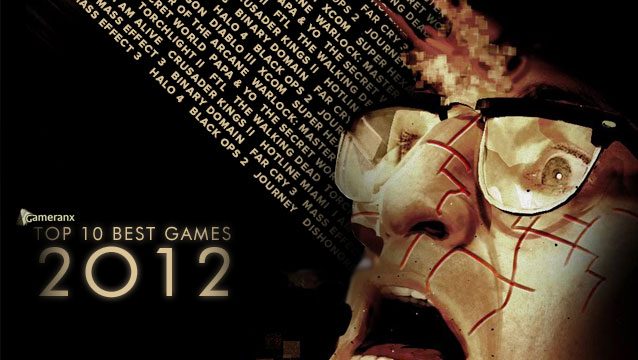
2012 has been one of the best years I can think of, not just got games, but for a variety of different games. No one person could have played them all, but that doesn't mean I didn't try. So here are my personal top ten...well, fifteen games, of those I've played.
Ed: And because Rowan's tastes seem to match our very own here at Gameranx, we've decided to turn what was formerly his personal list into the site's official list of the best games of 2012. As always, I must note that our tastes are subjective so don't expect your personal game of the year to be among our own. These are the games we personally enjoyed, with reasons that Rowan goes on to elegantly articulate. Read on!
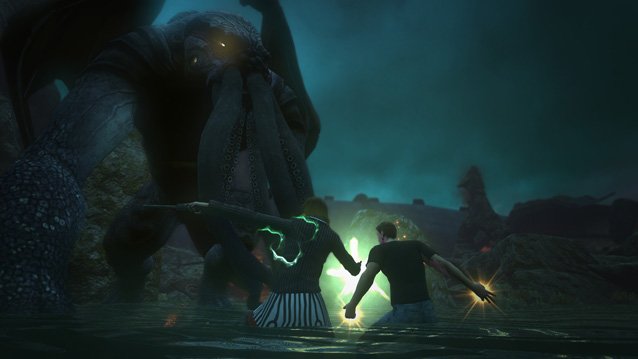
All very good games, with something just holding them back. Binary Domain is a great Mass Effect clone with a surprising story, but a weak start and excessive linearity hold it back. Super Hexagon is a total blast to play, although limited in scope. Diablo III should have been toward the top of this list, but a terrible story and bizarre meta-game decisions like the Auction House hurt it, badly. Warlock came out of nowhere and was a shockingly good, if narrow, fantasy strategy game. Far Cry III combined some of the best gaming moments of the year with some of the worst. And The Secret World pushed the boundaries of what was possible with MMRPGs, especially in terms of setting, but was just a little bit lacking in critically important polish.
I'm not normally a fan of stealth games, but Dishonored's ambitions in other respects caught my attention quite happily. Its asymmetrical morality was one of the most ambitious attempts at managing ethics in games since the original Fallout, while its steampunk setting aligned it more with the literary genre to great affect. But it was also a great game, particularly in its middle sections, where exploration, stealth, story, and character progression aligned quite neatly, making it entertaining for all kinds of different players in all kinds of different ways.
Beautiful and moving, Journey deals with ambiguity and metaphor successfully in a way that most games don't even bother beginning to try. What's more, it uses those metaphors in a way that gives the player the biggest, most positive screen upon with to project their ideas of religion and faith. In addition to that, the game is marvelously designed for pleasant cooperative experiences. It's also a perfect game to simply introduce the power of the medium to skeptics.
Papa & Yo is inextricably tied to Journey in my mind, both PS3 exclusives, both downloadable, both ostensibly puzzle-platformers, both literary in their goals, and both released a few weeks apart from one another. I give the slight nod to Papa & Yo because I find its explicit, painful parable of an alcoholic's child coming to terms with his father's disease to be even more powerful, especially when tied to its game mechanics. So many games are believed to be power fantasies—Papa & Yo shows that they're also powerlessness fantasies.
FTL is one of the year's most monumental gaming achievements, but in a way that's difficult to describe. It doesn't fit within, nor does it subvert, conventional genres, and it doesn't do anything daring with narrative. So here's what makes it special: it's one of the very rare games I would recommend to virtually anyone without any reservations. “You like games? Try FTL.” (the only caveat: people who would have difficulty pressing pause during tense situations)
It's like Star Trek: Voyager if Voyager had been awesome. It's an RPG where you play as a spaceship. It's quite simple once you start playing it, with a RTS-style interface to move your crew around and a slow escalation of complexity of ship systems. Its difficulty, procedural content, and permanent death make it a fantastic game for creating new and different stories each time it's played.
The Walking Dead doesn't depend on metaphor. Nor is it randomly generated. It's as intentional as a boot into the head of an undead zombie, and more powerful for it. Telltale Games took the idea of “moral choice” that's become stagnant in RPGs in invested with the amorality and powerlessness. You try to make your lot in the game world slightly better, but you know the shit's gonna go down anyway. That's tragedy. And understanding that is quality. Telltale also made The Walking Dead a solid game beyond simply being a fantastic choose-your-own-adventure. It improved on its structure over the course of its episodic run, while also toying with that structure in order to add shock to events that really shouldn't have been shocking.
Other 2012 RPGs like Diablo III and Guild Wars II tried to make all aspects of their game easier and more customizable. Torchlight II took an entirely different tactic: your choices are more permanent (although with some experimentation allowed) and long-term planning becomes more and more necessary at higher levels. What could have been frustrating was balanced magnificently, making it one of the best RPGs for character development in several years. This, combined with a solid game engine, a good amount of personality, and a plot that knew when to shut up and get out of the way for the clicking, made Torchlight II my favorite pure RPG of the year.
To get it out of the way—yes, I hated the ending. But I hated the ending because the previous 95% of the game had been such a stellar ending to the stories of Commander Shepard, Garrus, Tali, Liara, and all the rest. For example, the high point of the game comes during its Tuchanka mission, where the emotional stakes of the Krogan genophage come together in a sequence that’s as well-done and nearly as emotional as anything from The Walking Dead. But unlike that game, Mass Effect III has great gameplay to back up the story presentation—immediately before making your final plot decisions on Tuchanka, the game has an amazingly intense battle with four of the giant Brutes attacking you at once (a battle commonly matched at higher levels of the multiplayer as well). Intensity of mechanics combine with intensity of storytelling for Mass Effect at its best, and that happens many times in Mass Effect III.
Every few months, I start a new campaign in Crusader Kings II. Every time, this campaign dominates my life. For days it’s all I can think about. If I’m lucky, my medieval dynasty collapses early, stabbed in the back by a former ally or invaded by a horde of Mongols or simply unable to survive the lack of a legal heir to my lands. Then the game only ends after a day or two. Or what happens in my last game might happen, where I take a duchy on the boot of Italy, turn it into the Kingdom Of Naples after 150 years, the Sicilian Empire after 200, and by the game’s end in 1453, I’ve managed to recreate the gains of the early Roman Republic, dominating the western Mediterranean.
But what makes Crusader Kings II so epically good is that this isn’t done via a military and building simulation. It’s a game of relationships. You’ll get more out of figuring out the proper marriage for your half-sister to gain an alliance with a nearby king than you will from properly choosing your victory path. And even when you’re at your peak, the relationship system means that it could all collapse—a single assassination kills your powerful king, his son isn’t of age, and the regency can’t hold the kingdom together as your once-best friend of a Duke takes it all from your new character…and you have to build everything up again. It’s the best ever game for creating emergent and meaningful stories.
Sid Meier, designer of Civilization and founder of Firaxis (the company that remade XCOM), has a philosophy: a game is a series of interesting choices. This concept bleeds through every part of XCOM. What exists in the 2012 XCOM is much of the greatness of the original 1994 X-COM, but with much of the extraneous time-wasting stuff filtered out. You will be bombarded with choices. Shoot or run. Advance or hide. Research defense or weapons. Pick Snap Shot or Team Shot as your Sniper’s skill. Fight a UFO using outmoded guns or let it go. Save St. Petersburg or Kinshasa. Shoot or run. Shoot or run. For some people, this is stressful. For me, it’s strangely relaxing to be confronted with a game that consistently prevents me from going through the simple motions of the most effective tactic or two. Playing XCOM, at the proper difficulty, with a decent understanding of the game’s systems, is one of the finest experiences I’ve had with any game.
Sadly Un(der)played: Hotline Miami, Mark Of The Ninja, Sleeping Dogs, Halo 4, Fez, Wargame: European Escalation, Spec Ops: The Line, Tokyo Jungle, Kingdoms Of Amalur: Reckoning, I Am Alive, Endless Space, or anything on iOS, 3DS or Vita. So in a year, this list could look very different.



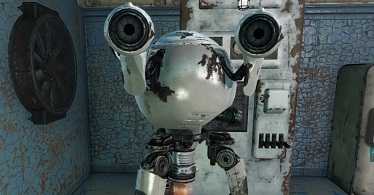
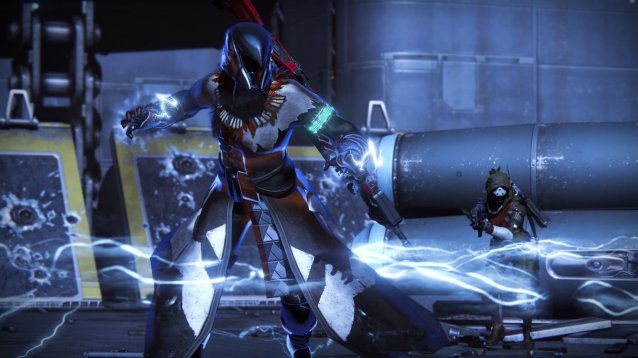 Destiny: The Taken King Guide: 10 Tips to Getting Back Into the Game
Destiny: The Taken King Guide: 10 Tips to Getting Back Into the Game Less Is More: 5 Small Games That Are Big On Fun
Less Is More: 5 Small Games That Are Big On Fun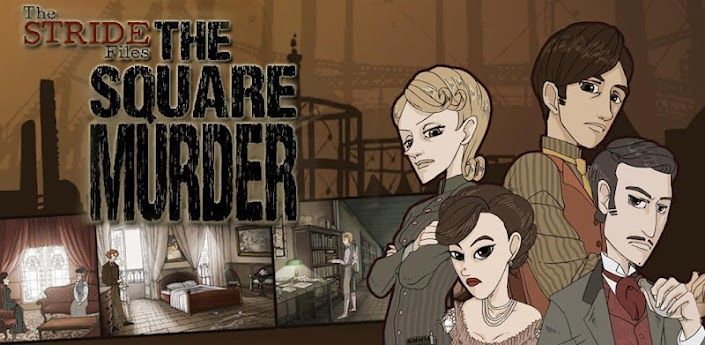 Stride Files The Square Murder Walkthrough
Stride Files The Square Murder Walkthrough Dragon Ball XenoVerse How to: Yamcha Mentor Quest Guide
Dragon Ball XenoVerse How to: Yamcha Mentor Quest Guide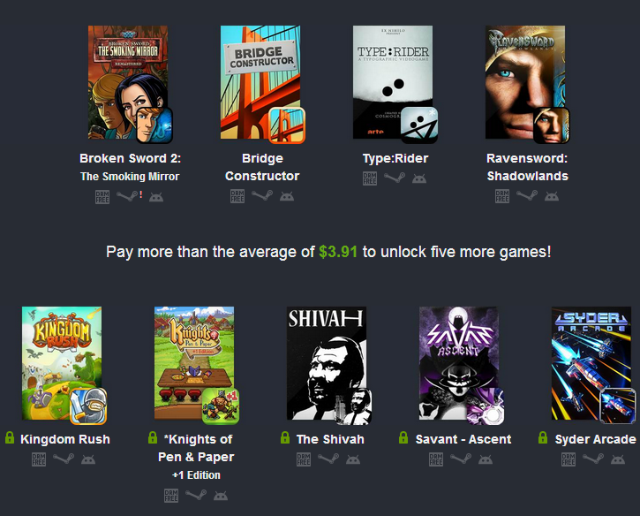 Humble Bundle PC and Android 9 Gets Even Better With 3 More Games
Humble Bundle PC and Android 9 Gets Even Better With 3 More Games